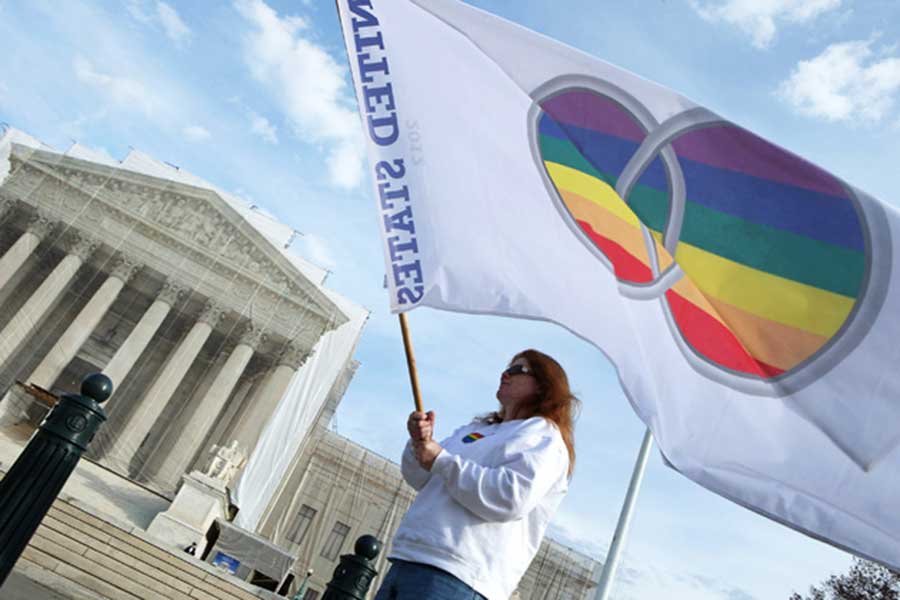
On Tuesday, the U.S. Supreme Court heard oral arguments in Obergefell v. Hodges, the landmark marriage-equality case that is expected to settle the issue nationwide.
“Today’s oral argument at the Supreme Court is a historic moment that caps a collective decades-long movement for the freedom to marry,” said Ted Martin, executive director of Equality PA. “The question at issue is whether all people, including same-sex couples, are given the freedom to marry under the Constitution. We believe that all loving and committed couples should have the freedom to marry — and we are very hopeful that the court will agree.”
The nine justices heard two-and-a-half hours of arguments by both sides that centered on two questions: First, can states ban same-sex marriage? And second, must a state recognize a lawful marriage performed in another state?
While same-sex marriage is legal in 36 states, Ohio, Kentucky, Michigan and Tennessee are fighting to uphold their bans.
Both the conservative and liberal justices acted predictably in their questioning while they listened to the arguments. But their differences in opinion seemed to boil down to a few key ideological differences.
The conservative justices expressed concern about trumping a state’s right to decide for itself and redefining the institution of marriage as it has been known for the better part of “a millennia,” according to Justice Kennedy.
Yet Justice Ginsburg pointed out that recent changes in the institution of marriage — namely its transformation into an egalitarian institution rather than “one dominated by the male partners who determined where and how the couple would live”— made it appropriate for same-sex couples.
The liberal justices also raised questions about the fundamental right to marry, and the same–sex parents who want the dignity of being married.
In response to the conservative justices’ “who decides” question, Mary Bonauto, who represented the gay couples in the first part of the arguments, reframed the question in her closing statement with stunning clarity.
“The choice is not between the court and the state,” said Bonauto, “but instead whether the individual can decide who to marry, or whether the government will decide for him.”
Many expect the vote to come down to Justice Kennedy and perhaps Chief Justice Roberts.
Legal pundits advise that people not read too much into the justices’ questions, though conventional wisdom would suggest that a ruling not in favor of marriage equality would seriously complicate the court’s previous ruling in the Windsor case, and undermine the message it sent when it refused to stay state bans as they fell across the country last year.
A decision is expected at the end of June.

